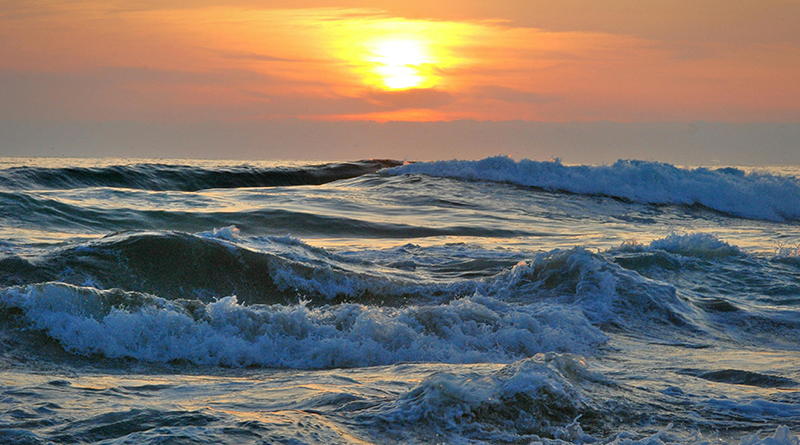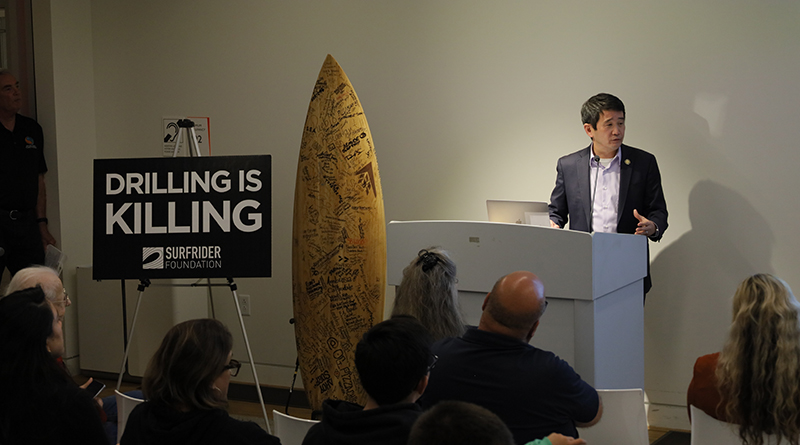California’s nearly thousand-mile coastline is both a sanctuary for marine biodiversity and a sun-drenched hub of human activity, lined with dramatic cliffs, foggy coves, and golden beaches. These coastal waters support hundreds of fish and marine mammal species and provide critical habitat for thousands of invertebrates. Coastal tourism and recreation contribute approximately $22 billion annually to California’s economy and sustain more than 350,000 jobs.
A healthy coastal ecosystem fuels local economies, regulates climate, supports fisheries, and safeguards biodiversity — all essential for the long-term resilience of both marine life and human communities.
Unfortunately, our oceans face compounding threats: climate change, ocean acidification, overfishing, and the relentless tide of plastic pollution.
Fortunately, several passionate, science-driven nonprofit organizations are working tirelessly to preserve, protect, and restore California’s coastal and marine environments. Through education, policy advocacy, research, and restoration, their efforts are shaping a more resilient future for the Pacific Ocean — and for everyone who depends on it. Here are just a few organizations making a difference, their missions, and ways you can get involved.
Heal the Bay (Los Angeles). At the heart of Southern California’s ocean advocacy is Heal the Bay, founded in 1985 to clean up the then-heavily polluted Santa Monica Bay. Today, it’s a leader in environmental protection, with programs that span water quality monitoring, environmental education, plastic reduction policy, and community science.
Its Beach Report Card is one of the most trusted tools for evaluating water quality at California’s beaches, empowering millions of residents and tourists to make informed choices.
Based in Santa Monica, the organization also operates a public aquarium beneath the pier, engaging tens of thousands of visitors annually in marine science and stewardship. Those interested in volunteering, supporting legislation, or joining a beach cleanup can learn more at healthebay.org.
Surfrider Foundation (San Clemente, with chapters statewide). Blending grassroots activism with policy influence, the Surfrider Foundation and its local chapters engage thousands of volunteers across the state in beach cleanups, plastic reduction campaigns, and coastal preservation efforts.
Surfrider’s Blue Water Task Force enables citizen scientists to monitor local water quality, while its Ocean Friendly Restaurants program helps businesses eliminate single-use plastics. The foundation has played a key role in passing legislation to reduce ocean pollution and protect public beach access. Visit surfrider.org and locate your local chapter at surfrider.org/chapters.
The Bay Foundation (Santa Monica Bay) Also known as the Santa Monica Bay Restoration Foundation, The Bay Foundation focuses on habitat restoration and sustainable coastal development. It works throughout greater Los Angeles to restore degraded wetlands, dunes, and reefs.
Its Kelp Forest Restoration Project, which involves removing overpopulated sea urchins to allow kelp to regrow, has restored hundreds of acres of vital underwater habitat. The foundation also leads green infrastructure efforts such as living shorelines and stormwater projects to improve water quality and coastal resilience. Learn more at santamonicabay.org.
California Ocean Alliance (Santa Cruz) Operating throughout the rich marine region of Monterey Bay, the California Ocean Alliance (COA) conducts research on how human activity affects whales, seals, and dolphins. Using non-invasive acoustic and satellite tracking technologies, the organization studies marine mammals and advocates for their protection from ship strikes, sonar, and habitat disruption.
COA collaborates with scientists, policymakers, and coastal communities to ensure decisions impacting marine ecosystems are backed by rigorous science. Visit caoceanalliance.org for more information.
The Marine Mammal Center (Sausalito) Based in Sausalito, The Marine Mammal Center is a global leader in marine mammal health and rescue — and the largest facility of its kind in the world. Each year, it rehabilitates hundreds of sea lions, elephant seals, and other marine mammals found sick or injured along the California coast.
Its veterinary team also conducts research on ocean-borne diseases, toxic algae blooms, and entanglement injuries, shedding light on the impacts of ocean degradation. The center offers education programs and summer camps to inspire the next generation of ocean stewards. Visit marinemammalcenter.org to learn more.
California Coastkeeper Alliance (Statewide) The California Coastkeeper Alliance (CCKA) unites regional Waterkeeper organizations across the state to defend clean water and champion healthy coastlines from the Sierra to the sea. Their members tackle everything from agricultural runoff in Central Valley rivers to pollution in Los Angeles stormwater systems.
CCKA is instrumental in advancing marine protected areas, enforcing accountability for polluters, and promoting clean water policies at the state and federal levels. Find out more at cacoastkeeper.org.
Show Your Love for the California Coastline, Its Waters and Wildlife. Get Involved or Donate!
California’s ocean nonprofits welcome support from donors, volunteers, students, and community members. Here are a few ways you can take action:
- Volunteer for beach cleanups, water testing, or marine animal care.
- Donate or start a monthly giving plan.
- Reduce your use of single-use plastics and opt for reusables.
- Educate yourself and others about ocean health and coastal issues.
- Join advocacy efforts: email elected officials, attend public hearings, and support conservation policies.
Most importantly, stay connected. Follow these organizations online or subscribe to their newsletters to stay informed about coastal issues, events, and victories.
These groups are more than just environmental advocates — they’re safeguarding public health, climate stability, and the future of our coast. But they can’t do it alone.
Californians from Sausalito to San Diego can make a difference. By supporting these nonprofits, engaging in local action, and living in closer harmony with the ocean, we protect not just the sea — but the planet and ourselves.






